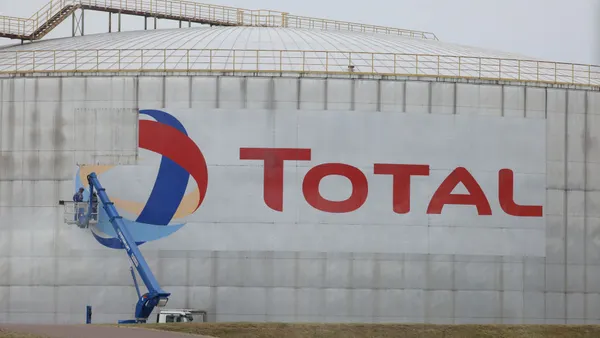Securities and Exchange Commission Chair Paul Atkins took aim at the International Financial Reporting Standards Foundation and the European Union’s corporate sustainability laws this week in France.
Currently, foreign companies can use the International Accounting Standards Board’s IFRS standards to prepare their financial statements for the SEC without reconciling them with the U.S. Generally Accepted Accounting Principles, or GAAP. Atkins, who was an SEC commissioner when that rule was adopted in 2007, threatened to no longer allow such accounting methods during the keynote of the first Organization for Economic Co-operation and Development roundtable in Paris on Wednesday.
At issue for Atkins is the International Sustainability Standards Board, created in 2021 to help coalesce global sustainability reporting standards. The SEC Chair said IASB’s ability to receive “stable funding” was a key consideration of the SEC’s approval for the 2007 rule, and the IFRS Foundation trustees are now responsible for fundraising for both IASB and ISSB.
“This recent expansion of the IFRS Foundation’s remit cannot divert its focus from its long-standing core responsibility of funding the IASB,” Atkins said. “In turn, the IASB must promote high-quality accounting standards that are focused solely on driving reliable financial reporting and are not used as a backdoor to achieve political or social agendas.”
Atkins said the IFRS Foundation should meet its “stable funding” goal by prioritizing IASB and its accounting standards, and pivot its focus from “specious and speculative issues.” Otherwise, he warned that the commission “may need to engage in a retrospective review” of the decision to eliminate reconciliation requirements between IFRS and GAAP accounting standards.
The SEC chair also raised concerns about the EU’s Corporate Sustainability Reporting Directive and Corporate Sustainability Due Diligence Directive during the keynote. The bloc’s legislators are currently in the process of simplifying the laws’ reporting requirements and promised in a trade deal with the U.S. that the two laws won’t place “undue restrictions on transatlantic trade.”
Atkins raised concerns about the double-materiality approach taken by the CSRD and CSDDD, which will also require U.S. companies that have an EU presence and reach certain thresholds of revenue and employees to comply. While Atkins said he was “encouraged” by the simplification efforts and trade deal promises, “further work remains to refocus regulatory regimes on the principle of financial, instead of double, materiality.”
“I have significant concerns with the prescriptive nature of these laws and their burdens on U.S. companies, the costs of which are potentially passed on to American investors and customers,” Atkins said. “As Europe seeks to promote its capital markets by attracting more companies and investment, it should focus on reducing unnecessary reporting burdens on issuers rather than pursuing ends that are unrelated to the economic success of companies and to the well-being of their shareholders.”
This is not the first time U.S. officials have taken issue with the EU’s corporate sustainability laws. House Financial Services Chair French Hill, R-Ark., argued earlier this year that the CSDDD should be treated as a “non-tariff barrier” for U.S. companies, and Sen. Bill Hagerty, R-Tenn., introduced a bill that would ban U.S. companies that are “integral to the national interests” of the U.S. from complying with foreign sustainability due diligence laws.
EU legislators delayed implementation of the next round of CSRD reporting companies and the first wave of CSDDD reporting companies until 2028, after the European Parliament and Council each passed a “stop the clock” proposal this spring.











